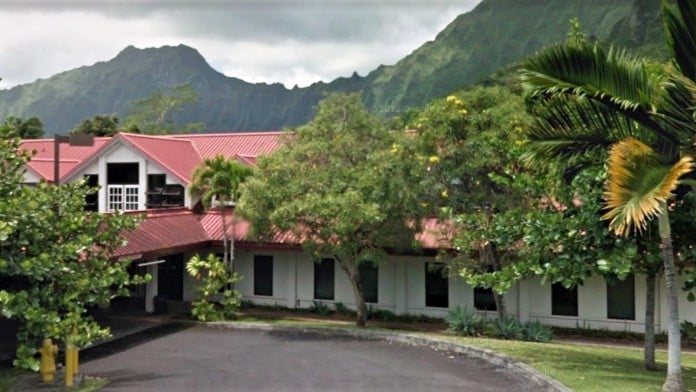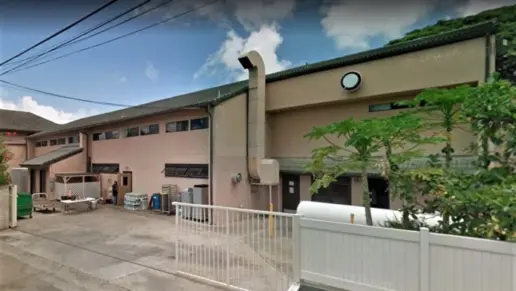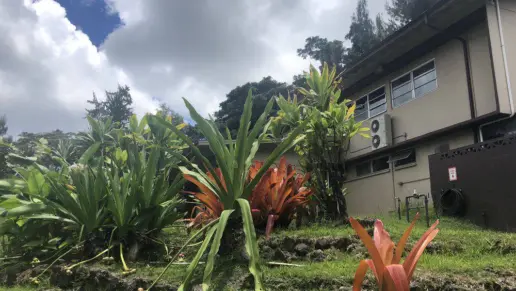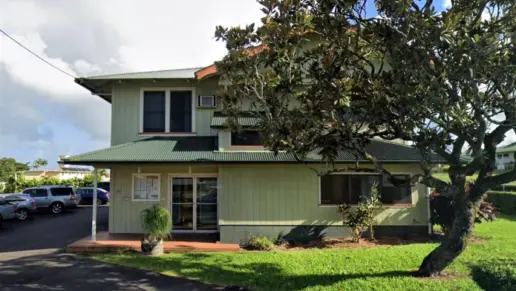Hina Mauka is great due to their impressive written policies and procedures. I'm sure that really impressed CARF. The only concern I have is that most of those written policies and procedures WERE NOT ENFORCED. In other words they are "paper programs".
About Hina Mauka
Hina Mauka is in Kaneohe, Hawaii and offers traditional and specialized treatment programs for addiction recovery. Adults, teens, and families who are seeking help with substance use disorders can receive professional support. Some of their unique programs include treatment for incarcerated women, teens, and individuals experiencing homelessness.
Their traditional services include inpatient and outpatient addiction treatment. These programs also provide dual diagnosis treatment, if you are experiencing a co-occurring disorder alongside a substance use disorder.
To participate in the residential addiction treatment program, you’ll live onsite and receive at least 24 hours of treatment each week. This includes at least one hour of individual counseling. Besides therapy and support groups, you’ll also participate in recreational activities.
The outpatient program for adults allows you to receive one to 15 hours of treatment per week, with flexible scheduling. You’ll attend skill building groups and individual and group counseling.
To offer other specialized adult programs, they partner with community organizations such as the correctional facility. For example, their Ke Alaula program offers Hawaiian culture based treatment at the Women’s Community Correctional Center.
The adolescent outpatient treatment program is Teen CARE. They focus on providing adolescents the tools and support they need to make positive changes in their lives. As a teen participant, you’ll engage in individual counseling sessions as well as sessions with teen peers. The program takes place in 20 middle and high schools in the region. In-home therapy and prevention services are also an option.
Latest Reviews
Rehab Score
Gallery

Location
Accepted Insurance
Other Forms of Payment
Medicaid is a state based program that helps lower-income individuals and families pay for healthcare. Medicaid covers addiction treatment so those enrolled can use their coverage to pay for rehab. When a program accepts Medicaid the client often pays very little or nothing out of their own pocket.
Private insurance refers to any kind of healthcare coverage that isn't from the state or federal government. This includes individual and family plans offered by an employer or purchased from the Insurance Marketplace. Every plan will have different requirements and out of pocket costs so be sure to get the full details before you start treatment.
Self-pay involves paying for treatment out of your own pocket. You can use savings or credit, get a personal loan, or receive help from family and friends to fund your treatment. If you don't have insurance or your insurance plan doesn't cover a specific program, self-pay can help ensure you still get the care you need.
Financial aid can take many forms. Centers may have grants or scholarships available to clients who meet eligibility requirements. Programs that receive SAMHSA grants may have financial aid available for those who need treatment as well. Grants and scholarships can help you pai for treatment without having to repay.
Medicare is a federal program that provides health insurance for those 65 and older. It also serves people under 65 with chronic and disabling health challenges. To use Medicare for addiction treatment you need to find a program that accepts Medicare and is in network with your plan. Out of pocket costs and preauthorization requirements vary, so always check with your provider.
Addiction Treatments
Levels of Care
Treatments
The goal of treatment for alcoholism is abstinence. Those with poor social support, poor motivation, or psychiatric disorders tend to relapse within a few years of treatment. For these people, success is measured by longer periods of abstinence, reduced use of alcohol, better health, and improved social functioning. Recovery and Maintenance are usually based on 12 step programs and AA meetings.
Drug rehab in Hawaii is for individuals suffering from substance use disorders. Treatment addresses the many issues involved with addiction, typically through a combination of medical and psychotherapy treatments.
Additionally Hina Mauka offers a Dual Diagnosis track for offenders who have co-occurring mental health and substance abuse disorders. This track offers a specifically designed curriculum with skill building and process groups that focuses on relevant co-occurring disorders issues such as signs and symptoms of decomposition, medication utilization and social living skills. The curriculum incorporates CBT and ME approaches and sensitive to the offenders co-occurring demeanor. The dual diagnose track incorporates their psychiatrist, nursing staff and other qualified personal into the program to ensure proper facilitation and cohesiveness.
Opioid rehabs specialize in supporting those recovering from opioid addiction. They treat those suffering from addiction to illegal opioids like heroin, as well as prescription drugs like oxycodone. These centers typically combine both physical as well as mental and emotional support to help stop addiction. Physical support often includes medical detox and subsequent medical support (including medication), and mental support includes in-depth therapy to address the underlying causes of addiction.
Substance rehabs focus on helping individuals recover from substance abuse, including alcohol and drug addiction (both illegal and prescription drugs). They often include the opportunity to engage in both individual as well as group therapy.
Programs


Clinical Services
Cognitive Behavioral Therapy (CBT) is a therapy modality that focuses on the relationship between one's thoughts, feelings, and behaviors. It is used to establish and allow for healthy responses to thoughts and feelings (instead of unhealthy responses, like using drugs or alcohol). CBT has been proven effective for recovering addicts of all kinds, and is used to strengthen a patient's own self-awareness and ability to self-regulate. CBT allows individuals to monitor their own emotional state, become more adept at communicating with others, and manage stress without needing to engage in substance abuse.
Whether a marriage or other committed relationship, an intimate partnership is one of the most important aspects of a person's life. Drug and alcohol addiction affects both members of a couple in deep and meaningful ways, as does rehab and recovery. Couples therapy and other couples-focused treatment programs are significant parts of exploring triggers of addiction, as well as learning how to build healthy patterns to support ongoing sobriety.
Experiential therapy is a form of therapy in which clients are encouraged to surface and work through subconscious issues by engaging in real-time experiences. Experiential therapy departs from traditional talk therapy by involving the body, and having clients engage in activities, movements, and physical and emotional expression. This can involve role-play or using props (which can include other people). Experiential therapy can help people process trauma, memories, and emotion quickly, deeply, and in a lasting fashion, leading to substantial and impactful healing.
Addiction to alcohol and other substances affects not only the individual struggling with substance abuse, but also their family and friends. Just as family and friends may suffer from the behaviors of an addicted individual, they can also play a crucial role in the the recovery process. Hina Mauka’s Family Program is offered to family and friends of persons addicted to alcohol and other drugs. Participants learn about addiction, the effects of addiction on relationships, and their role in their recovery process.
Group therapy is any therapeutic work that happens in a group (not one-on-one). There are a number of different group therapy modalities, including support groups, experiential therapy, psycho-education, and more. Group therapy involves treatment as well as processing interaction between group members.
In individual therapy, a patient meets one-on-one with a trained psychologist or counselor. Therapy is a pivotal part of effective substance abuse treatment, as it often covers root causes of addiction, including challenges faced by the patient in their social, family, and work/school life.
Life skills trainings involve all the skills a person must have in order to function successfully in the world. These include time management, career guidance, money management, and effective communication. Truly successful addiction recovery is based on the ability to not only live substance-free, but to thrive. Life skills teaches the practical necessities of functioning in society, which sets clients up for success in life, and therefore sobriety.
Motivational Interviewing (MI) is a clinical approach to helping people with substance abuse issues and other conditions shift behavior in positive ways. It is more goal-oriented than traditional psychotherapy, as MI counselors directly attempt to get clients to consider making behavioral change (rather than wait for them to come to conclusions themselves). Its primary purpose is to resolve ambivalence and help clients become able to make healthy choices freely.
Trauma therapy addresses traumatic incidents from a client's past that are likely affecting their present-day experience. Trauma is often one of the primary triggers and potential causes of addiction, and can stem from child sexual abuse, domestic violence, having a parent with a mental illness, losing one or both parents at a young age, teenage or adult sexual assault, or any number of other factors. The purpose of trauma therapy is to allow a patient to process trauma and move through and past it, with the help of trained and compassionate mental health professionals.
Amenities
-
Residential Setting
Staff & Accreditations
Staff

CEO

CFO

DOA

MD

President & CEO
Accreditations

The Commission on Accreditation of Rehabilitation Facilities (CARF) is a non-profit organization that specifically accredits rehab organizations. Founded in 1966, CARF's, mission is to help service providers like rehab facilities maintain high standards of care.
CARF Accreditation: Yes
Contact Information
45-845 Pookela street
Kaneohe HI, 96744







